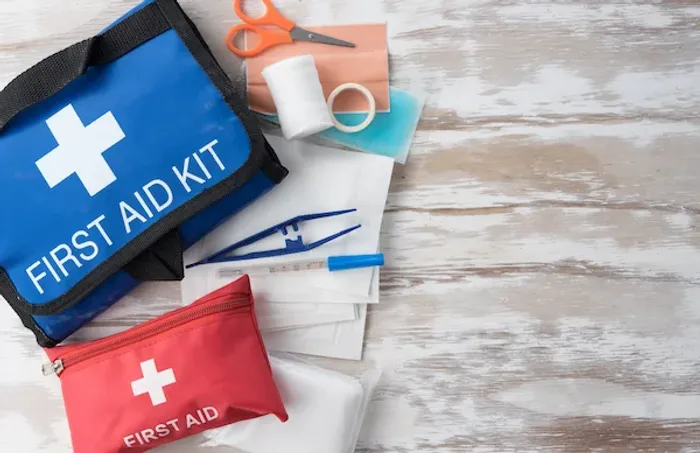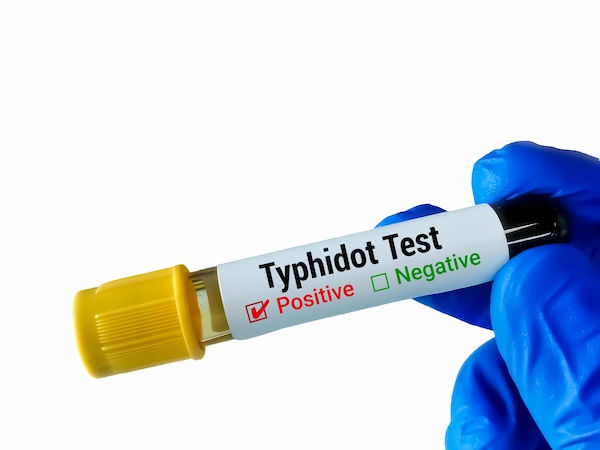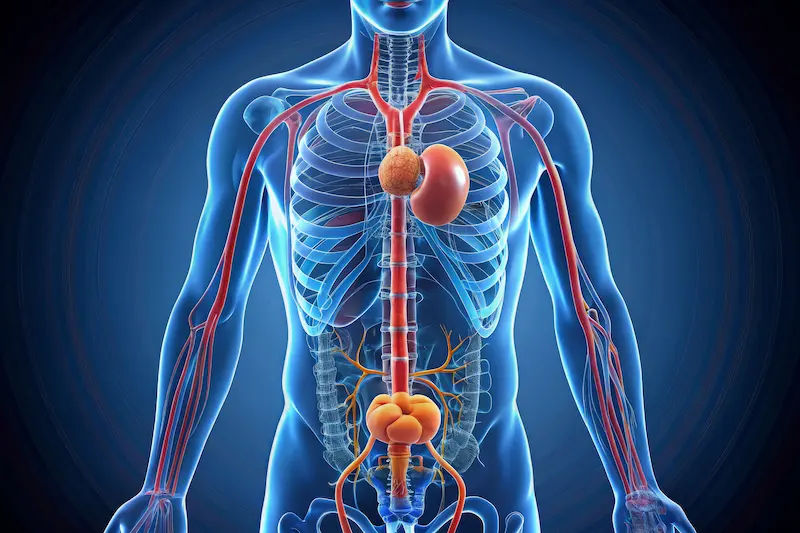Head Injury First Aid: Your Guide to Home Care & Recovery
Discover how to provide effective head injury first aid at home. Learn to identify serious symptoms, manage minor injuries, support recovery, and know when to seek medical help.


Introduction: Why Knowing Head Injury First Aid is Critical
A sudden fall, a bump against a cabinet, or a sports collision—head injuries can happen to anyone, anywhere, often when we least expect them. While most result in nothing more than a painful lump and a bruised ego, some can signify a more serious traumatic brain injury (TBI) like a concussion. Knowing how to administer proper head injury first aid in those critical first moments can significantly impact recovery and, in severe cases, can be life-saving. This guide is designed to be your comprehensive resource. We will walk you through how to immediately assess the situation, provide step-by-step first aid instructions for both minor and major incidents, and outline a clear plan for effective home care. Most importantly, we will detail exactly what to expect during recovery and when it's absolutely essential to seek professional medical help. Being prepared empowers you to act calmly and effectively, ensuring the best possible outcome for yourself or a loved one.
Recognising the Severity: Minor Bump vs. Medical Emergency
The single most important step after a head injury is to quickly assess its severity. This determines your next course of action: simple home care or an immediate trip to the emergency room.
The Red Flags: Symptoms That Demand Immediate ER Care
Call for an ambulance (108 or local emergency number) immediately if the injured person exhibits any of the following severe head injury symptoms:
Loss of consciousness, even if brief.
A worsening, severe headache.
Repeated vomiting or nausea.
Seizures or convulsions.
Drainage of clear fluid or blood from the nose or ears.
Pupils that are unequal in size.
Profound confusion, agitation, or slurred speech.
Weakness or numbness in arms or legs.
Loss of coordination or stumbling.
A visible deep cut or fracture in the skull, or an object embedded in the head.
Do not move the person if you suspect a spinal injury unless they are in immediate danger.
Signs of a Concussion: When to Call a Doctor
A concussion is a mild traumatic brain injury that temporarily affects brain function. While not always a medical emergency, it requires a professional diagnosis. Consult a doctor online with Apollo24|7 for further evaluation if the person experiences:
Persistent headache that doesn't subside.
Dizziness, blurred vision, or sensitivity to light/noise.
Feeling foggy, sluggish, or hazy.
Memory problems or difficulty concentrating.
Just not "feeling right" or feeling more emotional than usual.
Consult Top Specialists for Personalised Tips
Step-by-Step Head Injury First Aid Guide
Your actions in the first few minutes are crucial.
First Aid for a Minor Bump or Bruise
Apply Ice: Immediately apply a cold compress or ice pack wrapped in a cloth to the area for 15-20 minutes. This reduces pain and swelling.
Clean Cuts: If there is a minor cut, clean it gently with water and apply pressure with a sterile gauze to stop the bleeding.
Rest: Have the person rest comfortably. Avoid strenuous activity.
Monitor Closely: Observe them for the next 24-48 hours for any developing signs of concussion at home.
First Aid for a Serious Head Injury (While Waiting for Help)
Call for Emergency Help: Dial for an ambulance first.
Keep Still: Keep the person still with their head and shoulders slightly elevated. Avoid moving their neck.
Stop Bleeding: Apply firm pressure with a sterile bandage to any bleeding wound. Do not apply direct pressure if you suspect a skull fracture.
Monitor Breathing: Be prepared to perform CPR if they stop breathing, but only if you are trained to do so.
What NOT to Do After a Head Injury
DO NOT leave the person alone.
DO NOT allow them to return to sports or physical activity.
DO NOT shake the person if they seem dazed.
DO NOT remove a helmet if one is worn.
DO NOT give aspirin or ibuprofen immediately, as they can increase the risk of bleeding. Paracetamol is usually safer for pain, but consult a doctor first.
The First 24-48 Hours: Home Care Protocol
For a minor injury diagnosed by a doctor, home care is centered on management and observation.
Managing Pain and Swelling at Home
Continue to apply ice packs intermittently for the first day. Ensure the person gets plenty of physical rest. This means avoiding sports, heavy lifting, and strenuous household chores.
The Crucial Role of Cognitive Rest
This is a unique insight often underemphasised. Cognitive rest is just as important as physical rest for head injury recovery. This means limiting activities that require mental energy:
Screen Time: Significantly reduce time spent on smartphones, computers, video games, and television.
Reading: Avoid long periods of reading or studying.
Loud Environments: Avoid noisy parties, concerts, or crowded malls.
Allow the brain the quiet time it needs to heal.
What to Expect During Recovery
Recovery from a head injury, especially a concussion, is not always linear.
The Concussion Recovery Timeline
For most adults, symptoms of a minor concussion resolve within 2-3 weeks. For children and adolescents, recovery can sometimes take longer, up to a month. It's vital to gradually return to normal activities under a doctor's guidance to avoid re-injury.
Common Post-Concussion Symptoms
It's normal to experience some lingering effects during your head injury recovery:
Fatigue and increased need for sleep.
Difficulty concentrating.
Mild, occasional headaches.
Irritability or mild anxiety.
If these post-concussion symptoms persist beyond two weeks, consult a doctor online with Apollo24|7 for further evaluation and management strategies.
When to Seek Follow-Up Care
Seek follow-up care if symptoms suddenly worsen after initially improving, or if new symptoms like persistent dizziness or mood changes develop. A doctor can help manage the recovery process and rule out complications.
Conclusion: Be Prepared, Stay Safe
A head injury can be a frightening experience, but knowledge is your best defense. By understanding how to administer effective first aid, recognising the warning signs of a serious problem, and providing thoughtful home care, you can navigate the situation with confidence. Remember, the brain is resilient but deserves careful attention. Prioritise rest, both physical and cognitive, and never hesitate to seek professional medical guidance. Your vigilance and calm response are the most critical components of care and recovery. If your condition does not improve after trying these methods, book a physical visit to a doctor with Apollo24|7 for a comprehensive evaluation.
Consult Top Specialists for Personalised Tips

Dr. Rajib Ghose
General Physician/ Internal Medicine Specialist
25 Years • MBBS
East Midnapore
VIVEKANANDA SEBA SADAN, East Midnapore

Dr Syed Mateen Pasha
General Physician
2 Years • MBBS
Bengaluru
PRESTIGE SHANTHINIKETAN - SOCIETY CLINIC, Bengaluru

Dr. Vivek D
General Physician
4 Years • MBBS
Bengaluru
PRESTIGE SHANTHINIKETAN - SOCIETY CLINIC, Bengaluru

Dr. Anand Ravi
General Physician
2 Years • MBBS
Bengaluru
PRESTIGE SHANTHINIKETAN - SOCIETY CLINIC, Bengaluru

Dr. Ashita Kuruvilla
General Physician/ Internal Medicine Specialist
7 Years • MBBS
East Midnapore
VIVEKANANDA SEBA SADAN, East Midnapore
More articles from General Medical Consultation
Frequently Asked Questions
How long should you stay awake after a head injury?
This is a common myth. You do not need to keep someone awake after a head injury. In fact, rest is healing. However, a doctor might advise you to wake them every few hours for the first night to check for alertness and monitor for worsening symptoms.
What is the best pain reliever to take after a head injury?
For minor head injuries, paracetamol is generally preferred for pain relief in the initial stages, as it does not increase the risk of bleeding. Avoid aspirin or ibuprofen for the first 24-48 hours unless specifically advised by a doctor.
Can a head injury get worse after a few days?
Yes, symptoms can sometimes develop or worsen hours or even days after the initial trauma. This is why close monitoring during the first 48 hours is critical. A delayed worsening of symptoms could indicate a complication like a hematoma.
When is it safe to return to sports after a concussion?
Never return to sports on the same day. A gradual, step-by-step return-to-play protocol supervised by a healthcare professional is essential to prevent Second Impact Syndrome—a rare but dangerous condition that can occur from a second concussion before the first has healed.
What should I put in a head injury first aid kit?
A good kit includes: instant cold packs, sterile gauze pads and bandages, medical tape, antiseptic wipes, disposable gloves, scissors, a flashlight (to check pupils), and a printed list of emergency numbers and red-flag symptoms.




